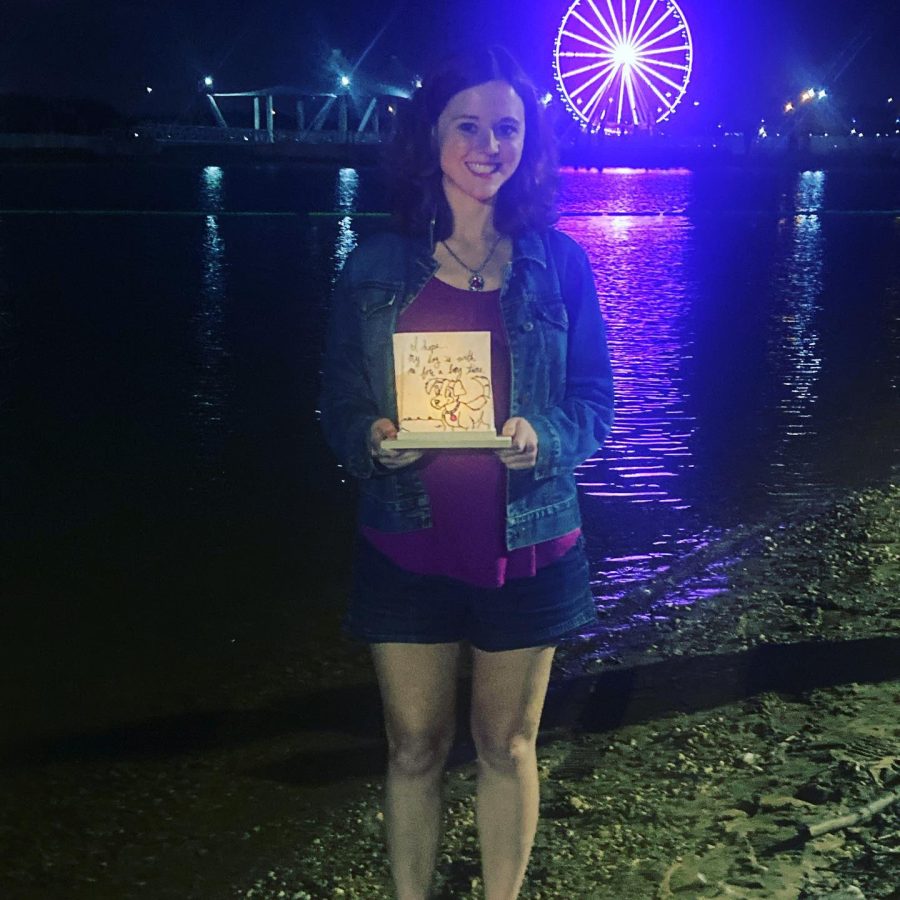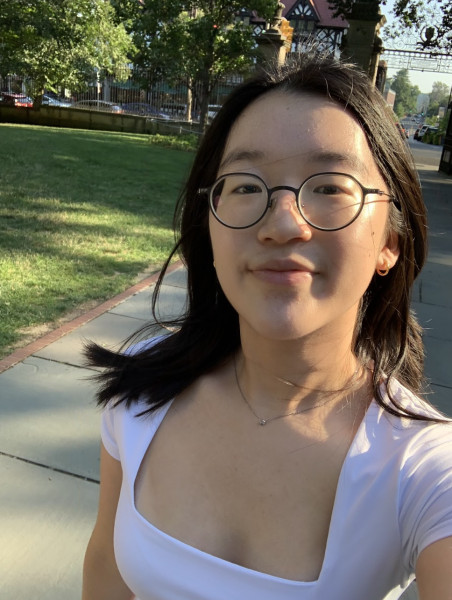An IVF Journey: a bumpy road of highs and lows
Sara Nemati, a biology teacher at WCHS, attends a lantern festival to make a wish for her IVF journey. Her lantern reads “I want a baby girl.”
March 28, 2023
IEP. GPA. ASL. These three-letter acronyms are so often used in the academic environment that students do not have to pause to register their meanings. In the AP Biology class at WCHS, however, an unfamiliar acronym appearing on the board puzzled students: IVF.
There may be those who say that IVF, or in vitro fertilization, is not something that belongs in the classroom. Sara Nemati, a biology teacher at WCHS, would disagree. In November, she surprised her students by announcing her pregnancy during a lesson on hormones, connecting the material to an in-depth explanation of her journey with fertility treatment.
According to Mayo Clinic, IVF is the most effective form of assisted reproductive technology; through a complex series of procedures, it helps with fertility and assists with the conception of a child. In more specific terms, eggs are collected from ovaries and fertilized by sperm in a lab, after which they are transferred to a uterus. However, despite its higher success rate than other fertility treatment options, it remains a difficult decision to make.
“When you are over 35 years old, your fertility declines,” Nemati said. “I suddenly found out that mine had declined; I was told [by my doctors] that I was basically running out of time to have a child. I have always felt that children were part of my journey, so I decided to take the step.”
IVF is a deeply personal experience, with the road being much more bumpy than smooth. So then, why share her journey with her students?
“I think it is absolutely something that is worth knowing more about,” Nemati said. “One, because the science behind it is fascinating. Two, because sometime in the future, students may have to go through an alternative path like I did, and it is important for them to know their options down the road.”
Being open has also garnered support from her communities; she has not had to walk the road alone.
“Since I have been open about my journey, several teachers at WCHS have told me that they had also done IVF,” Nemati said. “There are also message boards that you can go to for support throughout the process.”
Even with support, however, the simple fact remains that the decision to begin IVF treatment is a life-changing and anxious one, as it carries just as much a chance of bringing heartbreak as it does joy.
“It was definitely a difficult and emotional journey,” Nemati said. “It forces you to figure out how much you want something and how much you can handle. It is not easy – I had to go through three cycles of IVF and egg retrieval, and there are people who give up after one.”
Even if there is support coming from most directions, there can still be bias coming from others about being a single parent by choice. One of the biggest misconceptions people have about fertility treatment is that infertility only happens to people of older age. As a result of this prejudice, there may be those who do not understand why younger adults pursue these options and judge them for their choices.
“There are all sorts of reasons for why fertility can decline,” Nemati said. “For some people it happens in their thirties, but for others it does not happen until later in life. It varies from individual to individual at different ages. You have to make the best decision for yourself for where you are at.”
At the end of the day for Nemati, the best decision for herself was beginning IVF, and she has not looked back since.
“You don’t want to have regrets in life,” Nemati said. “I had to ask myself ‘If you’re on the fence and don’t do it right now, would you regret it on your deathbed?’ and the answer for me was yes.”
Although fertility treatment options are advancing and becoming both more accessible and popular, there does remain a stigma around infertility and single parents. If there is one thing Nemati would like the WCHS community to take to heart, it would be that keeping an open mind and heart opens eyes.
“Families look different. Families that do IVF and families that don’t do IVF – in the end, they are all just families,” Nemati said. “That’s part of what makes life interesting!”



